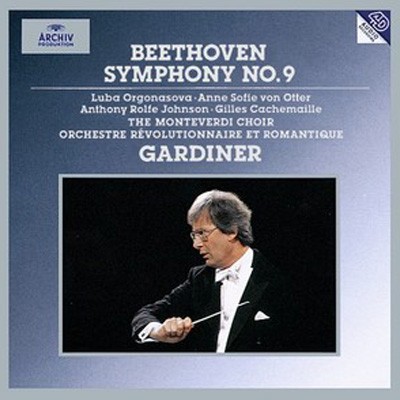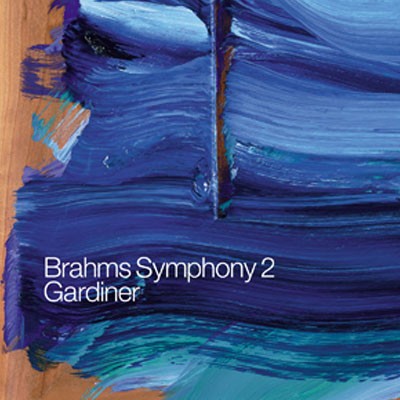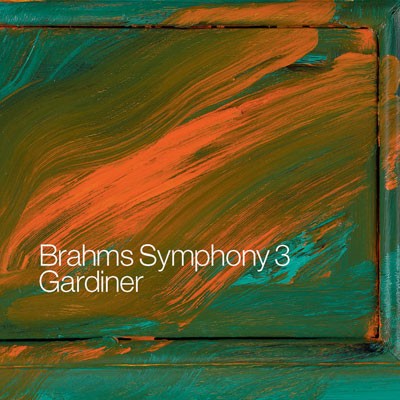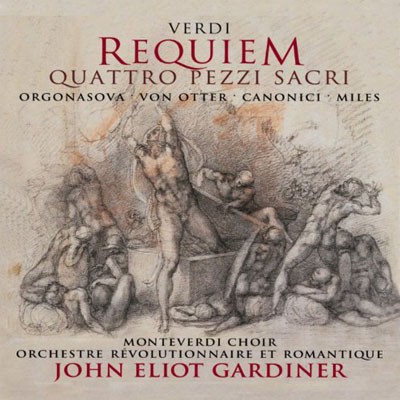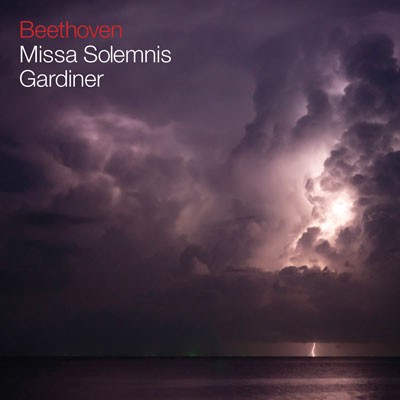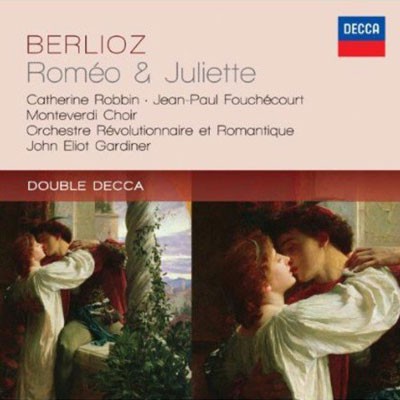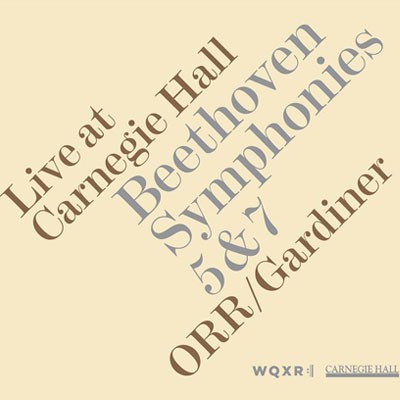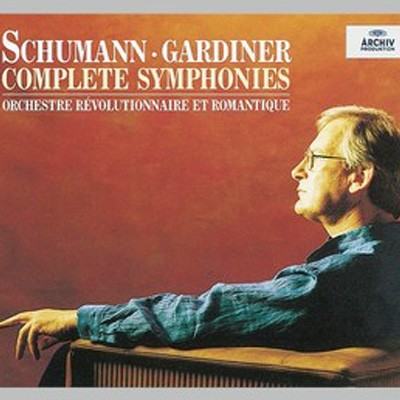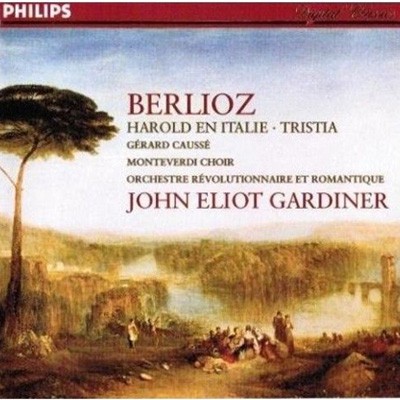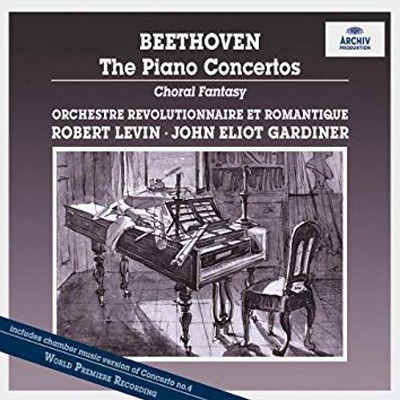ORR 30th Anniversary Playlist
To celebrate 30 years of the Ochestre Révolutionnaire et Romantique, we’ve complied a playlist of 30 tracks from the ensemble’s award-winning discography, hand picked by members of the orchestra. Read on to find out why these tracks are cherished as the ORR’s best recordings… Listen now on Spotify.
Peter Hanson, Leader
Beethoven: Symphony No. 2, movement II. Larghetto quasi Andante, arr. for violin, cello and piano (Deutsche Grammophon 1999)
“I’m very proud of this recording; it’s very important to me because it was very early on in my days with ORR and it cemented my connection with John Eliot Gardiner, Beethoven, and the orchestra.”
Schuamann: Das Paradies und die Peri, ‘Jetzt sank des Abends goldner Schein’ (Deutsche Grammophon 1999)
“It’s a recording that I’m not on! It’s a beautiful movement, and it was performed in memory of somebody in the orchestra who had died. It’s really stunning!”
Robin Michael, Principal Cello
Berlioz: Roméo et Juliette, Part 4 ‘Scherzo’ (Decca, 1998)
“What can one say about this music: zany, explosive, tender, seductive, modern, daring, poetic, I could go on. It has everything, and this recording bears testament to all of these things.”
Schumann: Symphony No. 3, movement III. Nicht schnell (Deutsche Grammophon 1998)
“This is one of my personal favourite symphonic pieces. It’s thrilling rhythmic drive juxtaposes with moments of poetic tenderness that couldn’t have come from any other composer.”
Valerie Botwright, Principal Double Bass
Beethoven: Symphony No. 5, movement I. Allegro con brio (SDG 2012 - recorded live in Carnegie Hall, New York, November 2011)
“The atmosphere was electric and the excitement palpable - a truly energetic and intense performance.”
Brahms: Symphony No. 2, movement I. Allegro non troppo (SDG 2009 - recorded live at the Salle Pleyel, Paris, November 2007)
“I chose the first movement of this glorious symphony simply because I love it. I love the sonority of the strings in the opening melody of this live recording and the distinctive colour of the winds and brass.”
Beethoven: Missa solemnis, Angus Dei (SDG 2013 - recorded live at the Barbican Hall, London, October 2012)
“This recording has four wonderful soloists (including my favourite bass, Matthew Rose) and the unsurpassable Monteverdi Choir. The opening prayer of the Angus Dei led by Matthew’s wonderfully dark tones is spine chilling. This sublime heartfelt music, to my mind, says it all.”
Marten Root, Principal Flute
Schubert: Symphony No. 5, movement II. Andante con moto (SDG 2018 - recorded live at the Concertgebouw, Amsterdam, November 2016)
“Schubert’s quiet, endless melodies just seemed to continue forever, and the effect it had then in the hall (and even now) was magical.”
Brahms: Symphony No. 1, movement IV. Adagio (SDG 2008 - recorded live at the Salle Pleyel, Paris, November 2007)
“The flute solo of the last movement is simply a dream for every flautist. The flute is usually identified with soft and melancholic melodies, but on the contrary this solo is majestic and acts as an ‘all is well’ ending to a dramatic symphony.”
Beethoven: ‘Coriolan Overture’ Op. 62 (SDG 2010)
“An overture so full of energy and strength you simply would want to hear the rest.”
Anneke Scott, Principal Horn
Schumann: Konzertstück for 4 Horns and Orchestra (Deutsche Grammophon 1998)
“I bought the box-set of Schumann CDs as soon as I was able and have loved this recording ever since. The sheer technical achievement is one thing but the musicality of everyone involved was and is inspiring.”
Schubert: ‘Gesang der Geister über den Wassern’, arr. Brahms (SDG 2009)
“One of the aspects of the Brahms cycle which I found really deepened the experience of performing the Brahms works was the “rarer” compositions which were included. I was particularly amazed by the Brahms arrangements of Schubert works in particular the Gesang der Geister über den Wassern.”
Dinis Sousa, Assistant Conductor
Schumann: Das Paradies und die Peri, ‘Die Peri sah das Mal der Wunde’ (Deutsche Grammophon 1999)
“This recording is how I got to know what instantly became one of my absolute favourite works. It shows the full range of the ORR, from the beautiful, delicate shaping of the opening chords, to the full blaze of the final bars.”
Beethoven: Symphony No. 9, movement IV. Presto (Deutsche Grammophon 1995)
“This was probably my first encounter with the ORR. I remember being amazed straightaway by the transparency of the strings as the theme appears in each section, with the incredible bassoon counter-melody so present and expressive. The build-up is so excitingly paced that it makes you want to jump up and sing!”
Brahms: Symphony No. 3, movement III. Poco allegretto (SDG 2009 - recorded live at the Salle Pleyel, Paris, November 2007)
“The Brahms cycle was a revelation for me and this movement illustrates that perfectly, with the clarity of the textures allowing us to hear so much more detail and contrast in the music. And to hear the horn solo on the natural horn, played so beautifully by Anneke Scott is a real highlight.”
James Halliday, Artistic Advisor
Berlioz: Harold en Italie, movement IV. Orgie de Brigands (Philips 1996)
“The ORR’s playing has transformed my view of Berlioz in general; the orchestra’s colours brilliantly point up his incredibly adventurous music. I’ll never forget the collective gasp (and audible ‘WOW’ from a member of the audience) at the end of the first movement of Harold at a recent performance at the Proms.”
Brahms: ‘Geistliches Lied’, arr. John Eliot Gardiner (SDG 2010)
“John Eliot Gardiner rightly spotted that Brahms’s original keyboard part would be beautifully suited to a string orchestra and this is a lovely collaboration between the Monteverdi Choir and the ORR. Brahms’s clever counterpoint reminds us what he owed to earlier German composers such as Schütz, who also appears on the disc.”
Verdi: Falstaff, Act III ‘Tutto nel mondo è burla’ (Philips 2001)
“Falstaff is a fabulous vehicle for showing off the colourful instruments and virtuosic playing of the ORR – Verdi’s quicksilver writing darts all around the orchestra.”

